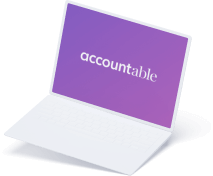
Your guide to starting as a FULL-TIME self-employed worker 👑
Read in 4 minutes
Here you are : you are now your own boss, you are now full-time self-employed 🙏
Being your own boss, of course, comes with all sorts of special rights and duties, you’ve heard about all of this before. In this article, we’re going to dive into what this new legal status really means for you.
You are a full-time self-employed, or self-employed as a main occupation when:
- you have no other professional activity.
- you work less than 50% in the private or public sector.
- you work less than 6 / 10th as a permanent teacher.
If you have not done it yet, it’s time to register yourself at the Crossroads Bank for Enterprises (CBE).
After you registered yourself, you receive a ten-digit number. This will be your company number.
The time has come, you are part of the big ones now!
You, and only you are at the core of your company. No corporate hierarchy, you’re the boss and that changes a lot.
New duties, new rights
First and foremost, you are responsible for safeguarding your social rights: when you’re self-employed you need to register yourself with a social insurance fund and you will need to start paying your social security contributions.
Social security contributions are there to help you through those important moments of your life: a birth, a health problem or your pension.
You have to inform your health insurance fund and your child benefit fund about your new status.
To enjoy these (mandatory) benefits, you need to start paying your social security contributions every trimester. In most cases, the social contributions will amount to around 20.5% of your annual income. Looking for ways to get an exemption or reduction on your payments? Or why it is important to pay on time? All the details can be found here.
When you’re an employee, your employer is paying the contribution to the Belgian National Office for Social Security (NOSS), as an employee you are warranted to having social security, without you having to calculate or pay your contributions.
Nobody is exempted from paying social security (unless you ask for it…), but as a self-employed, you’re reminded to pay every three months.
VAT & taxes for full-time self-employed workers
From now on, the government is counting on you to charge Value Added Tax (VAT) to your customers and to transfer it to them. That is that infamous VAT return with its monthly or quarterly payments – you probably heard about it before.
💡 if you’re working in the healthcare sector, you’re not subject to VAT. Having an annual turnover of 25K euro? You can opt for VAT exemption. All the details about these special VAT schemes can be found here. This way you can make informed decisions on what would be the best option for you.
Maybe you’ve ever heard someone ushering the phrase “no worries, I can put that on my company’s expenses” or “can you give me the receipt, I want to put it on my expenses”.
For most people, this is a landmark of being self-employed… think carefully before you start doing this yourself though: business expenses are the expenses or investments that you make in order to grow your business.
As a result, you must be able to prove that the reason you have these were for growing your business. Only when you have this proof, then you can deduct them, in part or in whole from your taxes. And that is the thing that makes them so interesting!
The Belgian tax system is indeed a progressive tax system: the higher your tax base, the more taxes you will need to pay in the following year. By logging expenses, your tax base is dropping so you become able to pay fewer taxes. Curious to find out more? Here’s in an interesting piece to help you.
At the end of the day though, there is no magic formula. Don’t spend too quickly what you’re earning at the end of the day there is still a tax bill to pay. Find our guided instructions here.
You’re the boss 👑!
Last but not least… we’ve already mentioned it at the beginning of this article: as a self-employed person, you don’t have a chain of hierarchy. You don’t have a boss that tells you what the dress code it, no one to tell you at what time you have to be at the office, or how much work you need to do.
Do you want to work from home? The park? The train? A coffee-shop? Leave several months to go on vacation? Keep a siesta every day? Going to empty Ikea during “office hours”? Go ahead! It’s your own responsibility right now, so choose wisely!
You’re the captain of your own ship, you decide how many hours you want to work and at what price. You determine when you slowly move your business in a new direction, or when to follow an education to learn new skills. You evaluate yourself. You choose your colleagues.
Sometimes it might be a bit more difficult, but at the end of the day, it is a rewarding task.
As accountable we would like to help you be the best own boss that you can be. How to decide what takes priority in your planning? How to decide what you will invoice to your clients.
Don’t hesitate to let us know what topics you would like us to address so we can help you and your business grow.
Here’s to you, you self-employed hero!
Did you find what you were looking for?
Happy to hear!
Stay in the know! Leave your email to get notified about updates and our latest tips for freelancers like you.
We’re sorry to hear that.
Can you specify why this article wasn’t helpful for you?
Thank you for your response. 💜
We value your feedback and will use it to optimise our content.










